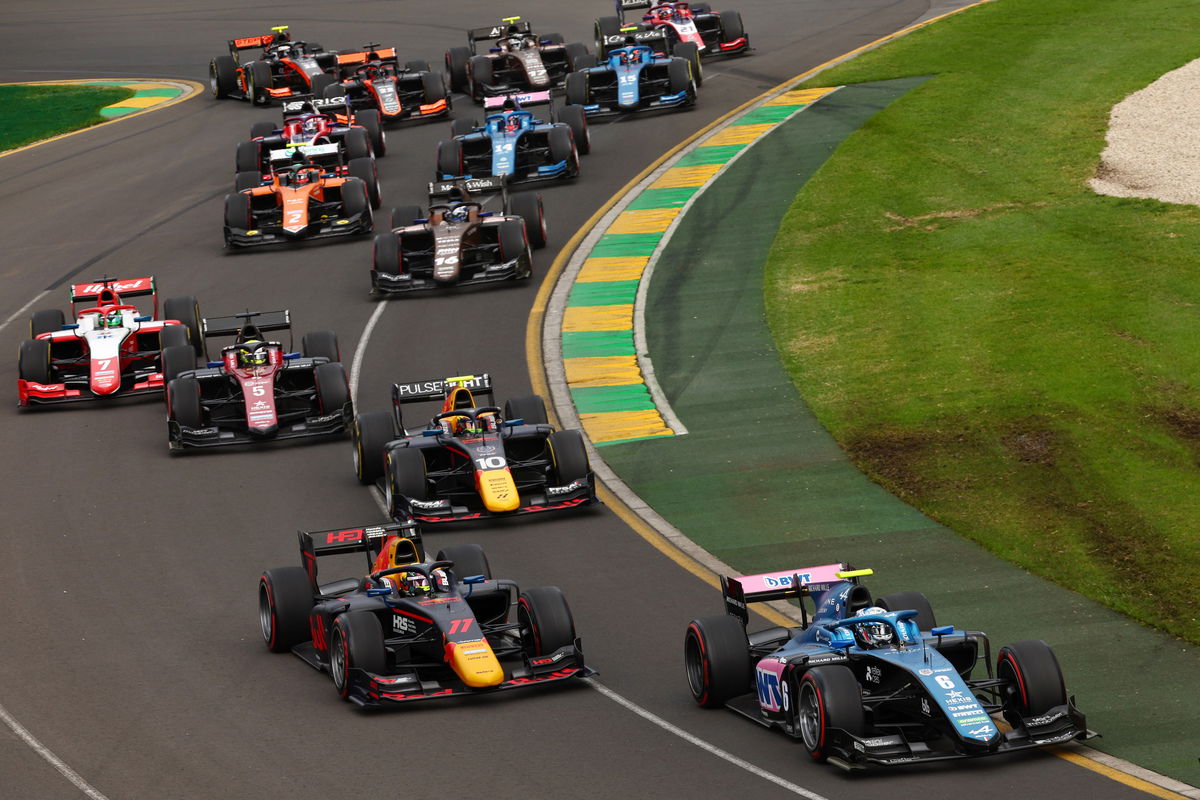

Changes to the F1 weekend format for this month’s Azerbaijan Grand Prix open the door to tweaks that could benefit Formula 2 and Formula 3.
The revised Baku concept includes two qualifying sessions, the second replacing Free Practice 2 at the Sprint event.
It was discussed in Melbourne and conversations remain ongoing. To date it has not been approved, but all parties seem to be leaning in that direction.
Practice debate
A related matter that arose was the ongoing format for a standard race weekend and whether F1 needs three practice sessions.
All three sessions were shortened in 2021 to leave a total of 180 minutes of running before qualifying.
There are fair arguments even that it is too much.
Questions surrounding practice feed into comments made by F1 boss Stefano Domenicali in the lead-up to the Australian Grand Prix.
The Italian suggested something needs to be done to spice up practice and make each session intrinsically more valuable.
Free Practice 3 adds little value; the teams get diminished returns and practice is difficult for the sport to sell.
On a Sprint weekend, Free Practice 2 takes place after cars enter parc ferme, hence the format chance for Baku.
Drivers call for less
A solution put forward by George Russell is to condense the weekend.
“I’d probably say, for the benefit of the 2000 or 3000 people travelling around the world, having the first session on Friday afternoon/evening, so there’s less pressure for teams to arrive,” the Mercedes driver explained.
“If you have your first session on a Friday morning, you need to be here on a Thursday, which for a lot of races requires flying on a Wednesday.
“If we can push that back to allow teams to fly on a Thursday morning, you add that up over 24 races in a year, you’re getting on for almost a month extra at home, or sleeping in your own bed.”
Opportuities for Formula 2
There’s more logic to his suggestion too.
The time saved by reduced or condensed F1 running could be passed on to Formula 2 and Formula 3.
Currently, both have a single practice session followed by qualifying and two races; a Sprint and a Feature respectively.
With both races using the results from their single qualifying outing, it places an extreme emphasis on that session.
The issue, however, is that it often comes down to luck and team strategy.
And while luck has a place in all sports, F2 and F3 are designed to be driver categories.
Currently, through no fault of their own, drivers can find themselves buried in the pack after qualifying, effectively ruining their weekend.
There is no second chance and in many instances, a single mistake by a third party is punished twice. Just ask Jack Doohan.
Benefits of a new format
Changes to the F1 weekend format could therefore have significant positive impacts further down the ladder.
A reformatted weekend could open the door for increased Formula 2 and Formula 3 qualifying.
That could mean separate qualifying sessions for each of the races.
While that does not eliminate the jeopardy at play, it reduces the risk a weekend being ruined by chance.
After all, the teams themselves are secondary to the mandate of the junior classes, the focus is on affording drivers the chance to shine.
Some luck will always be required, but if there’s an opportunity to eliminate or mitigate an unnecessary or undesirable variable the sport would be remiss to ignore it.




















Discussion about this post